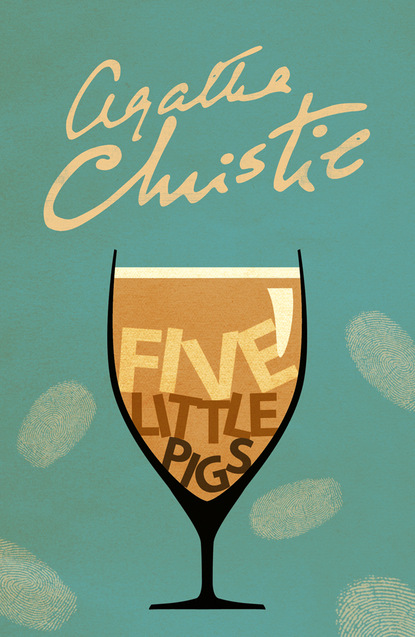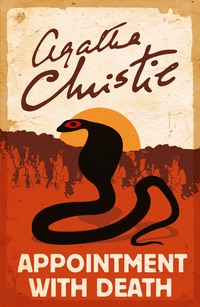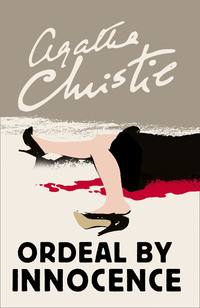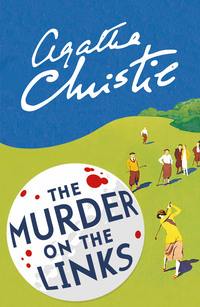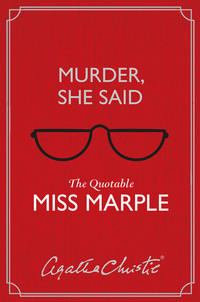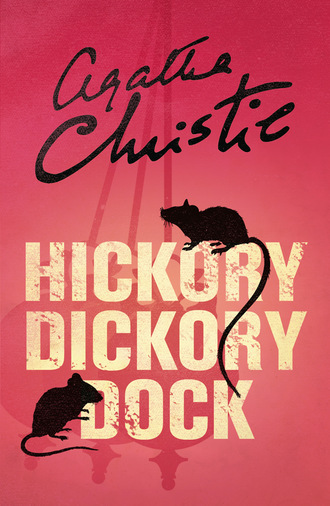
Полная версия
Hickory Dickory Dock
Returning students made varied comments on this.
‘Who’s this private eye?’ ‘Never heard of him.’ ‘Oh, I have. There was a man condemned to death for the murder of a charwoman and this detective got him off at the last moment by finding the real person.’ ‘Sounds crummy to me.’ ‘I think it might be rather fun.’ ‘Colin ought to enjoy it. He’s mad on criminal psychology.’ ‘I would not put it precisely like that, but I’ll not deny that a man who has been closely acquainted with criminals might be interesting to interrogate.’
Dinner was at seven-thirty and most of the students were already seated when Mrs Hubbard came down from her sitting-room (where sherry had been served to the distinguished guest) followed by a small elderly man with suspiciously black hair and a moustache of ferocious proportions which he twirled continuously.
‘These are some of our students, M. Poirot. This is M. Hercule Poirot who is kindly going to talk to us after dinner.’
Salutations were exchanged and Poirot sat down by Mrs Hubbard and busied himself with keeping his moustaches out of the excellent minestrone which was served by a small active Italian manservant from a big tureen.
This was followed by a piping hot dish of spaghetti and meat balls and it was then that a girl sitting on Poirot’s right spoke shyly to him.
‘Does Mrs Hubbard’s sister really work for you?’
Poirot turned to her.
‘But yes indeed. Miss Lemon has been my secretary for many years. She is the most efficient woman that ever lived. I am sometimes afraid of her.’
‘Oh I see. I wondered—’
‘Now what did you wonder, mademoiselle?’
He smiled upon her in paternal fashion, making a mental note as he did so.
‘Pretty, worried, not too quick mentally, frightened…’ He said:
‘May I know your name and what it is you are studying?’
‘Celia Austin. I don’t study. I’m a dispenser at St Catherine’s Hospital.’
‘Ah, that is interesting work?’
‘Well, I don’t know—perhaps it is.’ She sounded rather uncertain.
‘And these others? Can you tell me something about them, perhaps? I understood this was a home for foreign students, but these seem mostly to be English.’
‘Some of the foreign ones are out. Mr Chandra Lal and Mr Gopal Ram—they’re Indians—and Miss Reinjeer who’s Dutch—and Mr Achmed Ali who’s Egyptian and frightfully political!’
‘And those who are here? Tell me about these.’
‘Well, sitting on Mrs Hubbard’s left is Nigel Chapman. He’s studying Medieval History and Italian at London University. Then there’s Patricia Lane next to him, with the spectacles. She’s taking a diploma in Archaeology. The big red-headed boy is Len Bateson, he’s a medical and the dark girl is Valerie Hobhouse, she’s in a beauty shop. Next to her is Colin McNabb—he’s doing a post-graduate course in Psychiatry.’
There was a faint change in her voice as she described Colin. Poirot glanced keenly at her and saw that the colour had come up in her face.
He said to himself:
‘So—she is in love and she cannot easily conceal the fact.’
He noticed that young McNabb never seemed to look at her across the table, being far too much taken up with his conversation with a laughing red-headed girl beside him.
‘That’s Sally Finch. She’s American—over here on a Fulbright. Then there’s Genevieve Maricaud. She’s doing English, and so is René Halle who sits next to her. The small fair girl is Jean Tomlinson—she’s at St Catherine’s too. She’s a physiotherapist. The black man is Akibombo—he comes from West Africa and he’s frightfully nice. Then there’s Elizabeth Johnston, she’s from Jamaica and she’s studying law. Next to us on my right are two Turkish students who came about a week ago. They know hardly any English.’
‘Thank you. And do you all get on well together? Or do you have quarrels?’
The lightness of his tone robbed the words of seriousness.
Celia said:
‘Oh, we’re all too busy really to have fights—although—’
‘Although what, Miss Austin?’
‘Well—Nigel—next to Mrs Hubbard. He likes stirring people up and making them angry. And Len Bateson gets angry. He gets wild with rage sometimes. But he’s very sweet really.’
‘And Colin McNabb—does he too get annoyed?’
‘Oh no. Colin just raises his eyebrows and looks amused.’
‘I see. And the young ladies, do you have your quarrels?’
‘Oh no, we all get on very well. Genevieve has feelings sometimes. I think French people are inclined to be touchy—oh, I mean—I’m sorry—’
Celia was the picture of confusion.
‘Me, I am Belgian,’ said Poirot solemnly. He went on quickly, before Celia could recover control of herself: ‘What did you mean just now, Miss Austin, when you said that you wondered. You wondered—what?’
She crumbled her bread nervously.
‘Oh that—nothing—nothing really—just, there have been some silly practical jokes lately—I thought Mrs Hubbard—But really it was silly of me. I didn’t mean anything.’
Poirot did not press her. He turned away to Mrs Hubbard and was presently engaged in a three-cornered conversation with her and with Nigel Chapman, who introduced the controversial challenge that crime was a form of creative art—and that the misfits of society were really the police who only entered that profession because of their secret sadism. Poirot was amused to note that the anxious-looking young woman in spectacles who sat beside him tried desperately to explain away his remarks as fast as he made them. Nigel, however, took absolutely no notice of her.
Mrs Hubbard looked benignly amused.
‘All you young people nowadays think of nothing but politics and psychology,’ she said. ‘When I was a girl we were much more lighthearted. We danced. If you rolled back the carpet in the common-room there’s quite a good floor, and you could dance to the wireless, but you never do.’
Celia laughed and said with a tinge of malice:
‘But you used to dance, Nigel. I’ve danced with you myself once, though I don’t expect you remember.’
‘You’ve danced with me,’ said Nigel incredulously. ‘Where?’
‘At Cambridge—in May Week.’
‘Oh, May Week!’ Nigel waved away the follies of youth. ‘One goes through that adolescent phase. Mercifully it soon passes.’
Nigel was clearly not much more than twenty-five now. Poirot concealed a smile in his moustache.
Patricia Lane said earnestly:
‘You see, Mrs Hubbard, there is so much study to be done. With lectures to attend and one’s notes to write up, there’s really not time for anything but what is really worth while.’
‘Well, my dear, one’s only young once,’ said Mrs Hubbard.
A chocolate pudding succeeded the spaghetti and afterwards they all went into the common-room, and helped themselves to coffee from an urn that stood on a table. Poirot was then invited to begin his discourse. The two Turks politely excused themselves. The rest seated themselves and looked expectant.
Poirot rose to his feet and spoke with his usual aplomb. The sound of his own voice was always pleasant to him, and he spoke for three-quarters of an hour in a light and amusing fashion, recalling those of his experiences that lent themselves to an agreeable exaggeration. If he managed to suggest, in a subtle fashion, that he was, perhaps, something of a mountebank, it was not too obviously contrived.
‘And so, you see,’ he finished, ‘I say to this city gentleman that I am reminded of a soap manufacturer I knew in Liége who poisoned his wife in order to marry a beautiful blonde secretary. I say it very lightly but at once I get a reaction. He presses upon me the stolen money I had just recovered for him. He goes pale and there is fear in his eyes. “I will give this money,” I say, “to a deserving charity.” “Do anything you like with it,” he says. And I say to him then, and I say it very significantly, “It will be advisable, monsieur, to be very careful.” He nods, speechless, and as I go out, I see that he wipes his forehead. He has had the big fright, and I—I have saved his life. For though he is infatuated with his blonde secretary he will not now try and poison his stupid and disagreeable wife. Prevention, always, is better than cure. We want to prevent murders—not wait until they have been committed.’
He bowed and spread out his hands.
‘There, I have wearied you long enough.’
The students clapped him vigorously. Poirot bowed. And then, as he was about to sit down, Colin McNabb took his pipe from between his teeth and observed:
‘And now, perhaps, you’ll talk about what you’re really here for!’
There was a momentary silence and then Patricia said reproachfully, ‘Colin.’
‘Well, we can guess, can’t we?’ He looked round scornfully. ‘M. Poirot’s given us a very amusing little talk, but that’s not what he came here for. He’s on the job. You don’t really think, M. Poirot, that we’re not wise to that?’
‘You speak for yourself, Colin,’ said Sally.
‘It’s true, isn’t it?’ said Colin.
Again Poirot spread out his hands in a graceful acknowledging gesture.
‘I will admit,’ he said, ‘that my kind hostess has confided to me that certain events have caused her—worry.’
Len Bateson got up, his face heavy and truculent.
‘Look here,’ he said, ‘what’s all this? Has this been planted on us?’
‘Have you really only just tumbled to that, Bateson?’ asked Nigel sweetly.
Celia gave a frightened gasp and said: Then I was right!’
Mrs Hubbard spoke with decisive authority.
‘I asked M. Poirot to give us a talk, but I also wanted to ask his advice about various things that have happened lately. Something’s got to be done and it seemed to me that the only other alternative is—the police.’
At once a violent altercation broke out. Genevieve burst into heated French. ‘It was a disgrace, shameful, to go to the police!’ Other voices chimed in, for or against. In a final lull Leonard Bateson’s voice was raised with decision.
‘Let’s hear what M. Poirot has to say about our trouble.’
Mrs Hubbard said:
‘I’ve given M. Poirot all the facts. If he wants to ask any questions, I’m sure none of you will object.’
Poirot bowed to her.
‘Thank you.’ With the air of a conjurer he brought out a pair of evening shoes and handed them to Sally Finch.
‘Your shoes, mademoiselle?’
‘Why—yes—both of them? Where did the missing one come from?’
‘From the Lost Property Office at Baker Street Station.’
‘But what made you think it might be there, M. Poirot?’
‘A very simple process of deduction. Someone takes a shoe from your room. Why? Not to wear and not to sell. And since the house will be searched by everyone to try and find it, then the shoe must be got out of the house, or destroyed. But it is not so easy to destroy a shoe. The easiest way is to take it in a bus or train in a parcel in the rush hour and leave it thrust down under a seat. That was my first guess and it proved right—so I knew that I was on safe ground—the shoe was taken, as your poet says, “to annoy, because he knows it teases.”’
Valerie gave a short laugh.
‘That points to you, Nigel, my love, with an unerring finger.’
Nigel said, smirking a little, ‘If the shoe fits, wear it.’
‘Nonsense,’ said Sally. ‘Nigel didn’t take my shoe.’
‘Of course he didn’t,’ said Patricia angrily. ‘It’s the most absurd idea.’
‘I don’t know about absurd,’ said Nigel. ‘Actually I didn’t do anything of the kind—as no doubt we shall all say.’
It was as though Poirot had been waiting for just those words as an actor waits for his cue. His eyes rested thoughtfully on Len Bateson’s flushed face, then they swept inquiringly over the rest of the students.
He said, using his hands in a deliberately foreign gesture:
‘My position is delicate. I am a guest here. I have come at the invitation of Mrs Hubbard—to spend a pleasant evening, that is all. And also, of course, to return a very charming pair of shoes to mademoiselle. For anything further—’ he paused. ‘Monsieur—Bateson? yes, Bateson—has asked me to say what I myself think of this—trouble. But it would be an impertinence for me to speak unless I were invited so to do not by one person alone, but by you all.’
Mr Akibombo was seen to nod his black curled head in vigorous asseveration.
‘That is very correct procedure, yes,’ he said. ‘True democratic proceeding is to put matter to the voting of all present.’
The voice of Sally Finch rose impatiently.
‘Oh, shucks,’ she said. ‘This is a kind of party, all friends together. Let’s hear what M. Poirot advises without any more fuss.’
‘I couldn’t agree with you more, Sally,’ said Nigel.
Poirot bowed his head.
‘Very well,’ he said. ‘Since you all ask me this question, I reply that my advice is quite simple. Mrs Hubbard—or Mrs Nicoletis rather—should call in the police at once. No time should be lost.’
Конец ознакомительного фрагмента.
Текст предоставлен ООО «ЛитРес».
Прочитайте эту книгу целиком, купив полную легальную версию на ЛитРес.
Безопасно оплатить книгу можно банковской картой Visa, MasterCard, Maestro, со счета мобильного телефона, с платежного терминала, в салоне МТС или Связной, через PayPal, WebMoney, Яндекс.Деньги, QIWI Кошелек, бонусными картами или другим удобным Вам способом.




